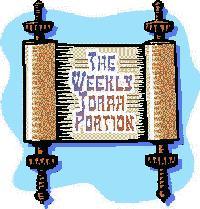Search our Archives:
» Home
» History
» Holidays
» Humor
» Places
» Thought
» Opinion & Society
» Writings
» Customs
» Misc.
|
Lighting the Way
By Michael Chessen
In the waning days of the late David Ben Gurion's era of leadership, he
reportedly expressed concern for the future of the young modern State of
Israel. It seems that Israel's first Prime Minister felt that the people
were in sorry need of a Moses, but alas, none appeared to be on the
horizon. Unquestionably, the actual Moses reached heights unequaled by any
other leader in Jewish history. However, as highlighted by our Torah
portion, Tetzaveh, (and certainly by the story of Purim), the
implementation of God's designs for us are not necessarily dependent upon
the availability of a given protagonist.
Whereas leaders such as Moses have certainly left their indelible
imprint on history, a central test of our faith in God is to maintain the
belief that He will guide us through difficult times by instilling our
current and future leaders with the wisdom and foresight of great leaders
of our past.
Moses' most effective moment as a leader was perhaps not in his
admittedly very dramatic role in facilitating expression of God's wondrous
miracles, but in his "zero sum negotiation" with God following the
people's sin of forming and worshipping the golden calf. In this
incredible dialogue with the Master of the Universe, Moses states that if
God refused to pardon the people then He should erase his name from God's
book. It is perhaps a mark of Moses' greatness that God actually fulfilled
his requests on both counts. He both spares the people, and erases the
name of Moses from a single "post-Genesis" portion, this week's Tetzeveh,
referring to Moses here exclusively through the use of the pronoun "you".
However, rather than this serving as a very partial fulfillment of
something negative, Tetzaveh's "concealment" of Moses is actually coming
to strengthen something positive. This being that we need to have faith
not only in God, but also in His people as a source of future leadership.
In this week's Torah portion, Moses is told to take Aaron and sons
"from among the people of Israel" in order to appoint them as priests. The
emphasis here is that the crucial role of spiritual leadership need not,
and even should not, be filled by someone who has been "parachuted" down
to the people from above, but filled by someone who has risen from among
the people, understanding their day to day concerns and possessing "on the
ground" insight into the specific needs of the times. As to the divinely
ordained ritual functions of the priests, it is very important to note
that their central role of lighting the menorah actually preceded their
appointment. It would seem that the hallmark of a great leader is not one
who is able to independently create light, but one who possesses the
wisdom to properly shine it.
The Priest's Garments
by Avi Lazerson
In this week's Torah Portion, Titsaveh, much is taken up with the details of the garments of the Kohanim, the priests that serve in the Holy Temple. The Jewish People have been commanded to make garments for the priests "for glory and for splendor."
The question is for the glory and splendor of whom?
Some say that the garments of the priests are to inspire all that look upon them and imbue them with glory and splendor of God and his Holy Temple. Just like a king who has guards around him, who wear uniforms that signify to the passerby that the person who lives in the building is of great importance, so too, the priests who, through wearing their uniforms, reveal the importance of their work and for whom the work is being done.
Others say that the glory and splendor is for the priests themselves. The work that the priest must do in the Holy Temple is a work of a very special nature. Just like a fireman or soldier must wear a special uniform that aids him in performing his tasks, so too, the priest must also wear these special garments. Part of the performance of his service is the realization that the presence of G-d is to be found in the Temple. He must be totally aware of the Master of this great House.
In either case, we see the importance of clothing. They imbue us with respect and give us honor. We, too, in our every day lives, must realize that we are striving to be a servant of G-d, therefore, we should dress for the part. Who knows, perhaps with some effort on our part and help from above we, to, will have our own personal service accepted like that of the priest in the Holy Temple.
We have two types of garments. One are the physical clothing that we wear in this world. The second is the garments that we use to clothe ourselves in the next world. These are the commandments that we fulfil with love and awe. Just like that soldier or fireman needs his garments in this world to be able to do his task, so too, we need our spiritual garments to appreciate the glory and splendor of G-d as revealed in the next world.
Wishing you all a Shabbat Shalom !

|
|
Please let us know if you see something unsavory on the Google Ads and we will have them removed. Email us with the offensive URL (www.something.com)
|





|
